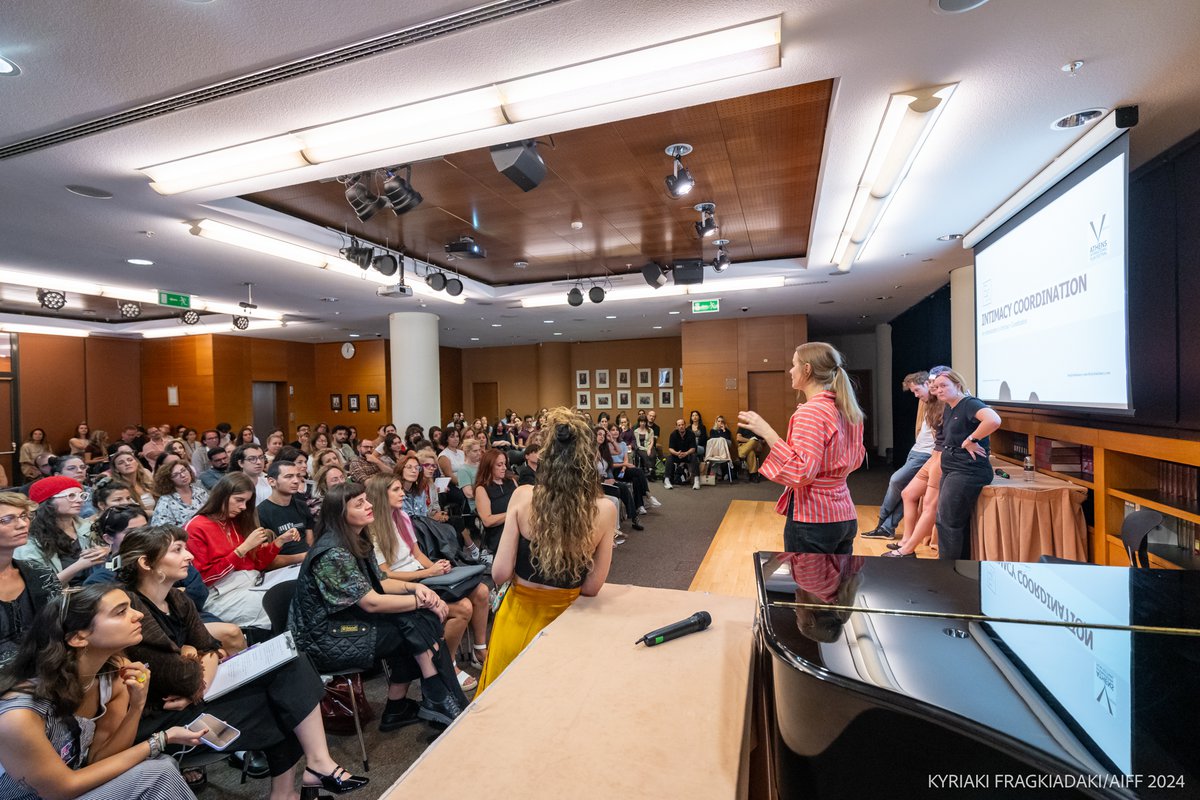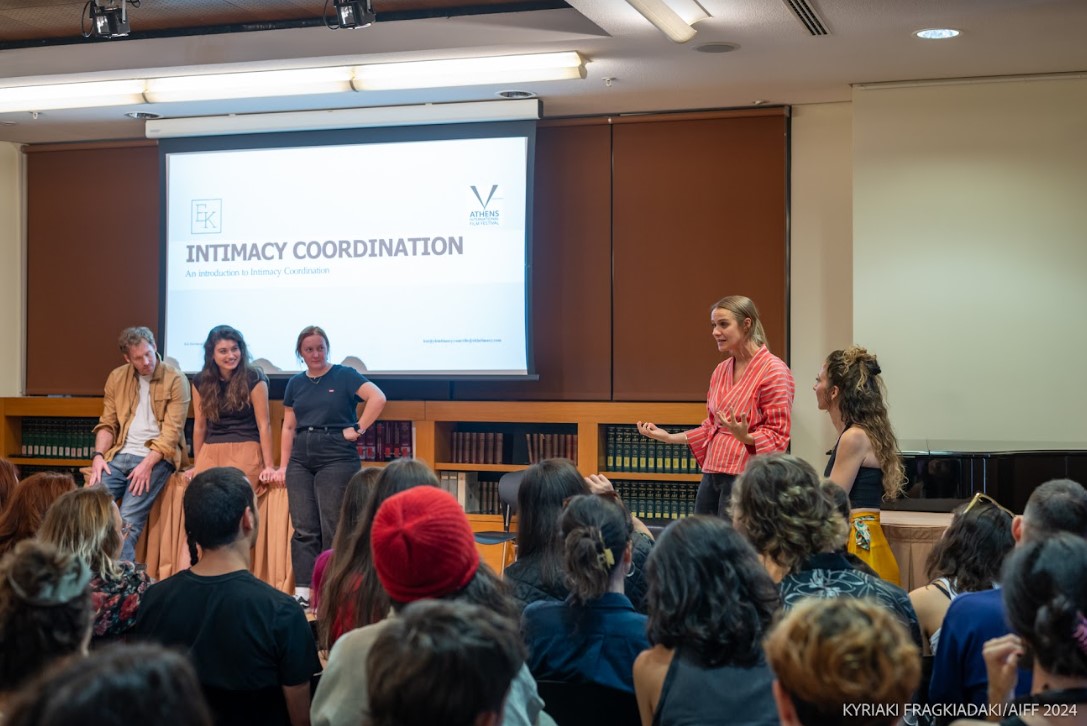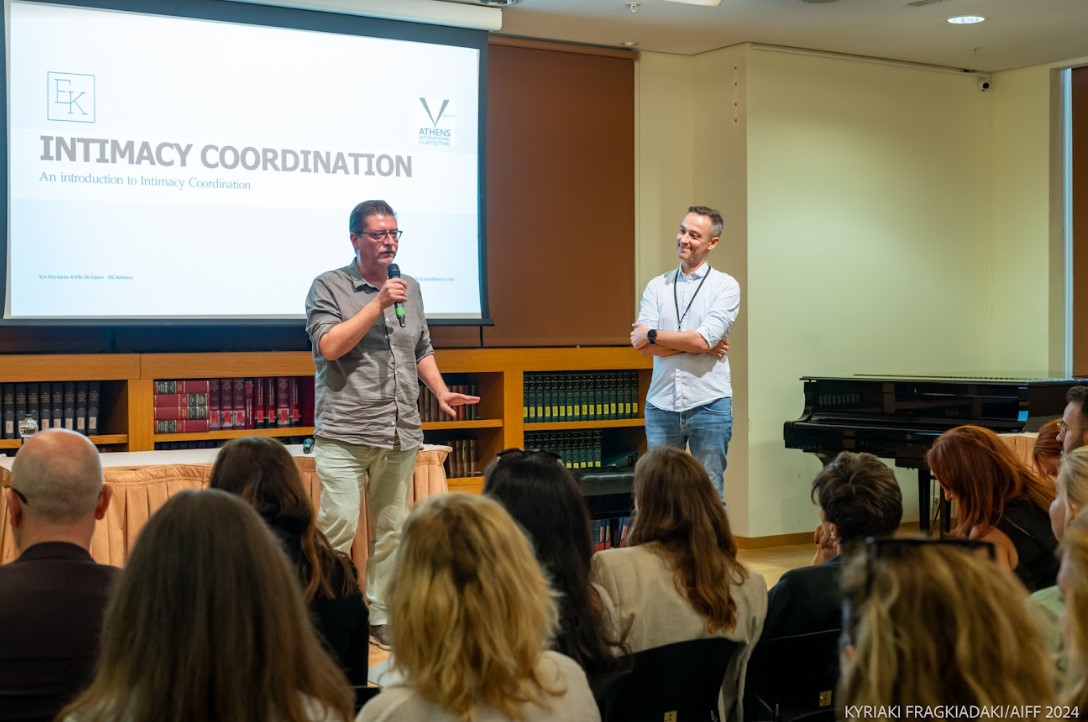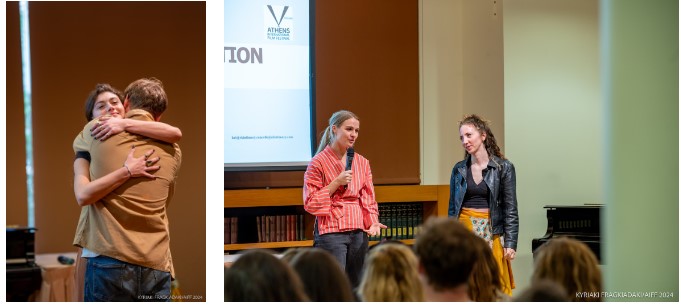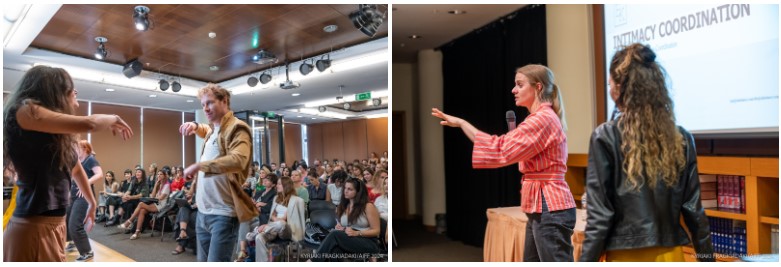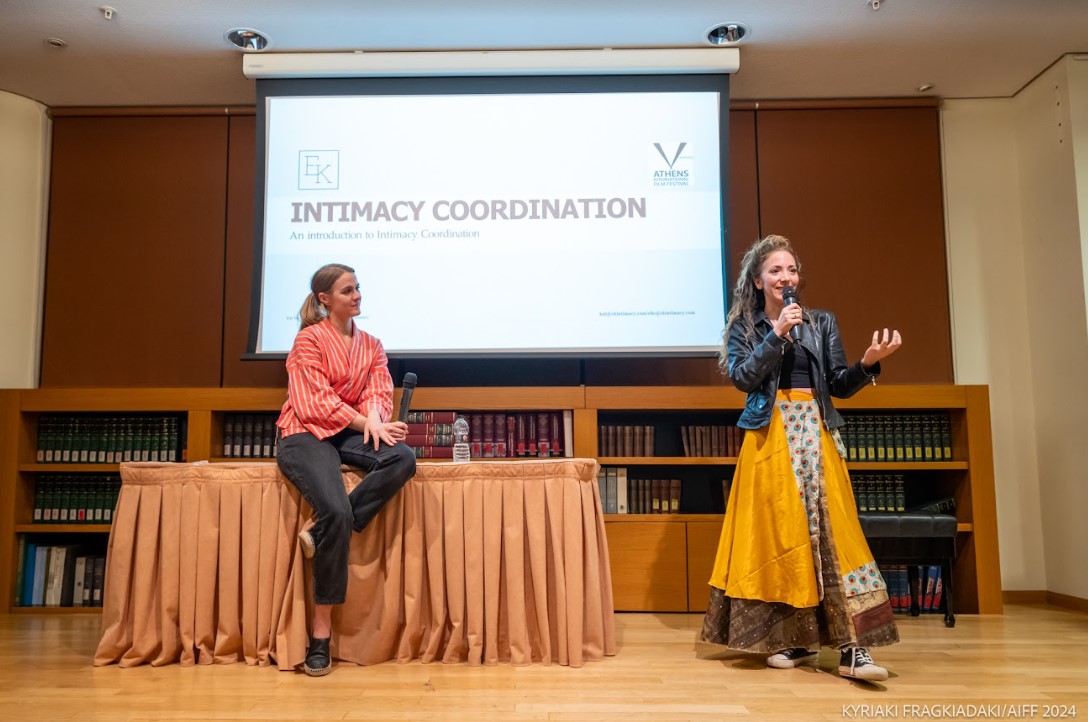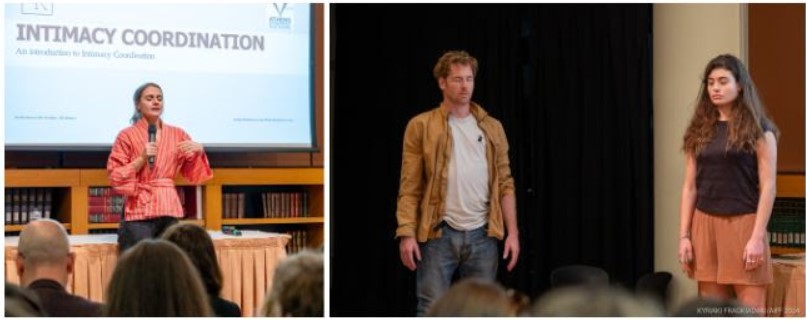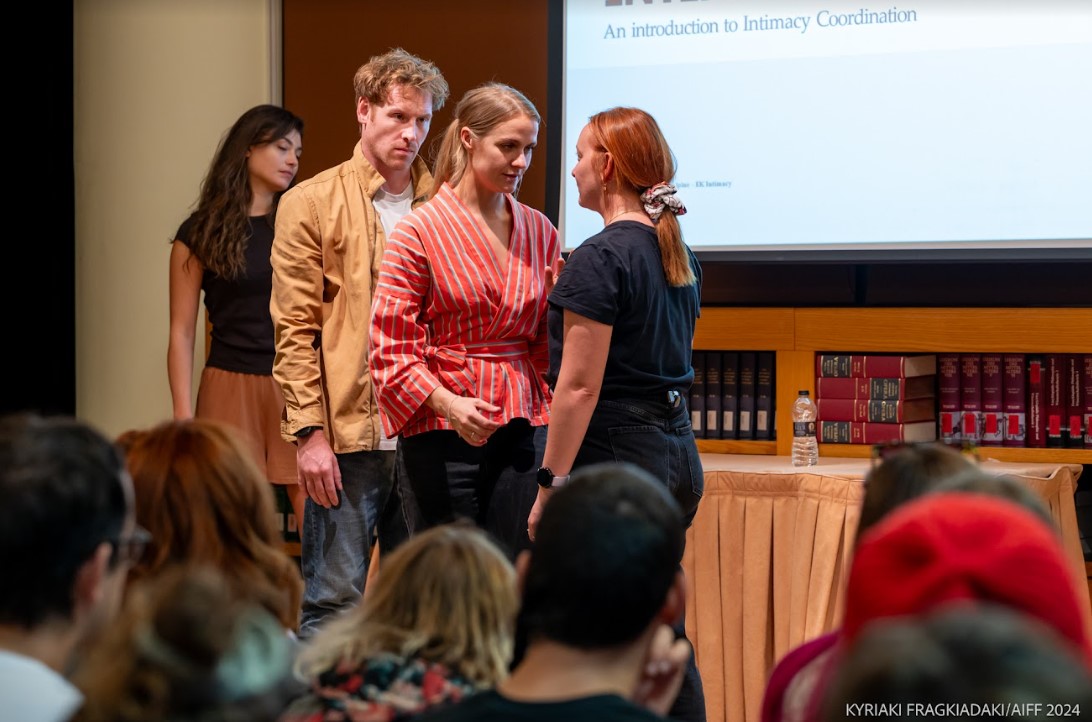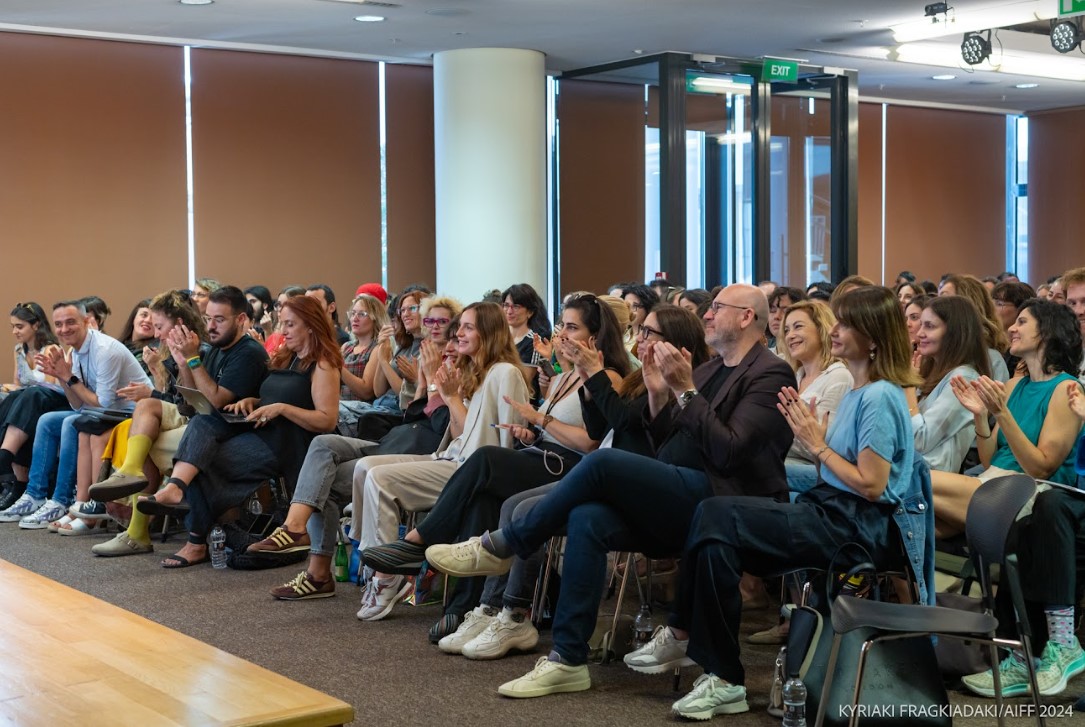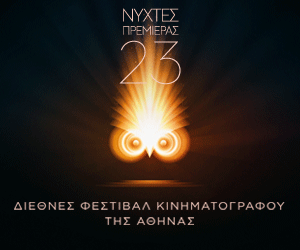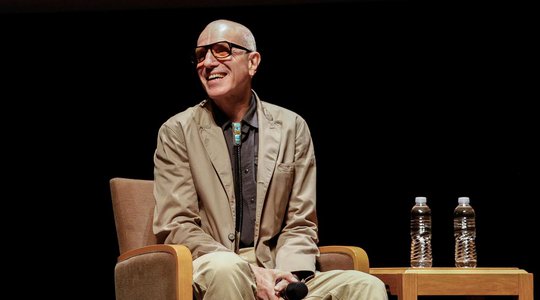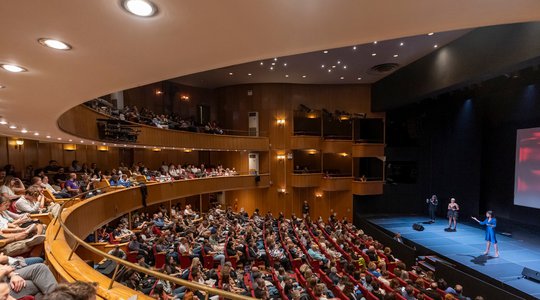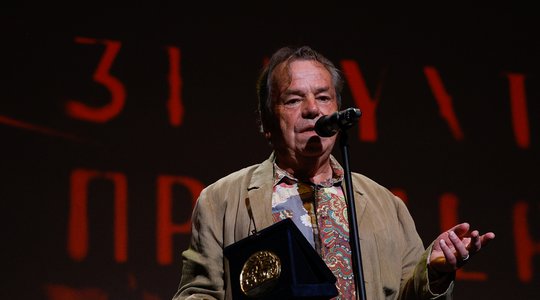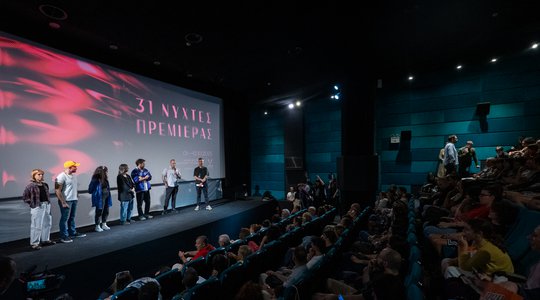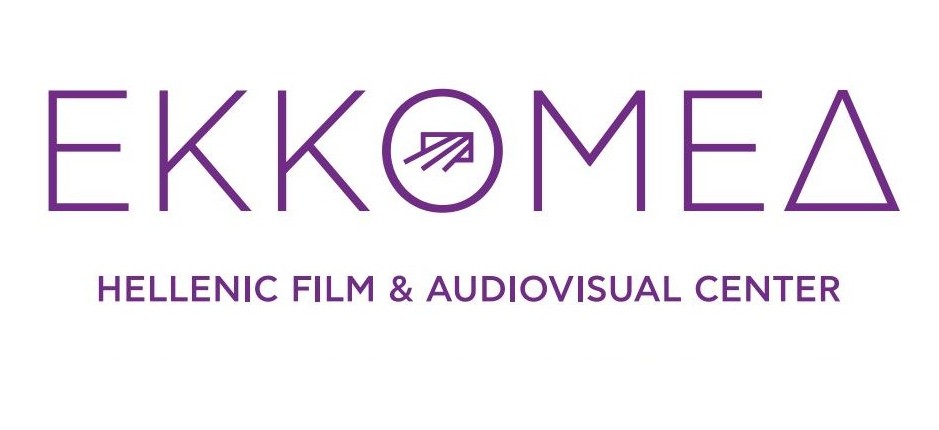Intimacy Coordination Workshop: One of the most successful and intimate workshops in the history of the Festival
The Intimacy Coordination Workshop held by the 30th Athens International Film Festival in collaboration with the Athens Film Office of the Municipality of Athens, on Friday, October 4th at the "Yannis Marinos" hall of the "Friends of Music" Society at the Athens Concert Hall, proved to be a great success.
“Creative process is a living organism that shifts and adapts to the actors’ boundaries”
Elle McAlpine
The Workshop, which was held in the framework of the popular Greek Short Stories in Competition of the Athens International Film Festival, was organized in Greece for the first time ever and focused on this fascinating and contemporary field in cinema, Intimacy Coordination.
The workshop guest and speaker was the internationally renowned Intimacy Coordinator, Elle McAlpine, with numerous major collaborations in film and television ("Poor Things" by Giorgos Lanthimos, "One Day", "Baby Reindeer" etc.). won over a large and lucky audience who attended with undivided enthusiasm as more than 200 participants, young creators, actors, choreographers, journalists, producers and therapists took an undiminished interest and participated in the jokes, reflections and questions posed by the fascinating Elle for a total of 5 hours.
The audience and Elle were welcomed by Stathis Kalogeropoulos, Director of the Athens Film Office, Panos Gkenas Head of the Greek Short Stories Competition Section of the festival and Athena Xenidou, producer and agent of Elle McAlpine.
The truly charismatic Elle shared with the participants all the guidelines on how to take on the role of an intimacy coordinator and then proceeded to an on-set demonstration with the help of the director, Asimina Proedrou and actors Michael Edwards, Maria Marangou and Romanna Lobach.
The renowned intimacy coordinator captivated the audience with her charismatic personality, her wit and humor and her insightful professional approach to this taboo subject that she runs through in an impressively safe and organic method, like choreography, as she handles her role with admirable tenderness and discretion, creating a safe interface between creator and cast.
As Elle McAlpine stated in her theoretical presentation, “The preparation that goes on before filming the scene is also highly crucial, for actors need to know all the details of what kind of sex they are having. The creative process shifts and adapts to the actors’ boundaries. It is necessary to communicate to the directors that any changes that may occur during the rehearsals or during shooting are vital and will assure a much better outcome since the people performing will feel more comfortable. We are energetic beings, we feel things that are not visible, if the actors in the scene don't feel comfortable or safe, it will be captured on camera and something will look uncomfortable or just wrong.”
And she added: “Love scenes have many similarities with fight scenes, they need a choreographed sequence of steps and movements.”
Elle also addressed the need to properly inform and protect the other members of the production as a sexual or violent scene can upset those witnessing it, emphasizing the need to create a safe environment for all cast and crew members.
"Actors should always feel safe and protected."
Asimina Proedrou
The acclaimed Greek director, Asimina Proedrou, who collaborated with Elle McAlpine for the execution and practical side of the workshop, emphasized that "directors love actors who give them new things, things to talk about. However, when the discussion is about the subtleties of a lovemaking scene, it's good for the director to tactfully/whisperingly communicate any comments, directions or observations they have, rather than sharing them bluntly with the entire set. Actors should always feel safe and protected."
Listening to the body
During the practical exercise, Elle, doing a warm-up reminiscent of a dance class, continued with some body scanning exercises during which the actors marked the "red/amber/green" parts of their bodies, identifying their safe zones as well as their non-safe areas.
Touching slowly from their heads to their toes, they reflect and consider which points they are comfortable with and which ones they are not, which ones evoke more tension or emotion. Red for the points that are a clear no, orange for maybe - which according to Elle, always means no and green for the points that feel comfortable and safe as yes.
This way, they communicate to the Intimacy Coordinator what they would like to avoid or watch out for while at the same time discovering their own sense of their body and limits.
In fact, to a question from the audience about "What do actors do when they don't like their partner at all?", Elle disarmingly replied that "you have to find something you love in or about him/her. During physical exercises or eye contact, notice the person you are facing. You might like - even just a little bit - his or her earlobe or the way he or she walks. Find something and stick to it."
The gender element of intimacy coordination
A photograph of her in the Sunday Times was the reason for her to pursue this career. As an actress, she had shot intimate scenes as part of an IC seminar and seeing herself in a photograph - which was not "objectively", by mainstream standards, flattering - she felt tremendously empowered by how her performance expressed itself and thought that this must be how every woman involved in such a scene must feel.
Finally, when asked about the existence or not of male intimacy coordinators, she stated that there are brilliant and remarkable male ICs but, over the course of her career, she has observed that actors - especially men, seek out and prefer female intimacy coordinators. She emphasized that it is a profession that involves, appeals to and requires contact with our feminine side.




